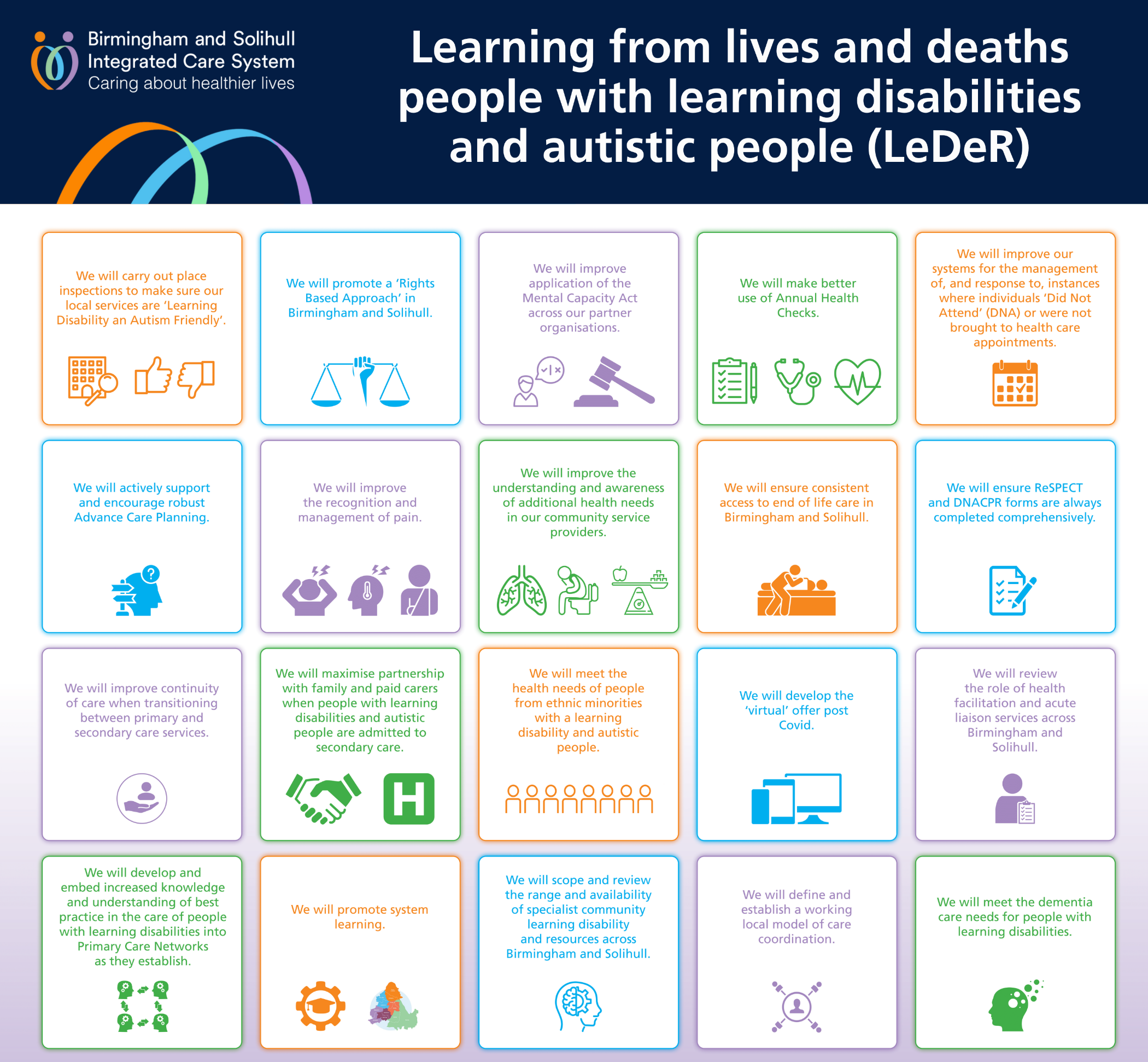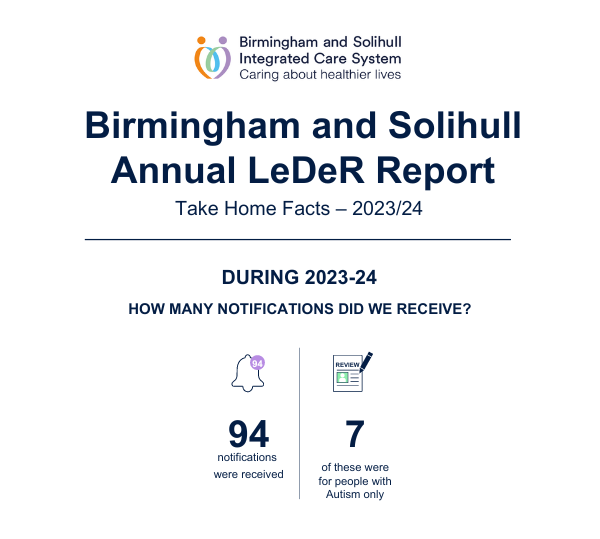Learning from lives and deaths – people with learning disabilities and autistic people (LeDeR).
LeDeR is a national service improvement programme looking at the lives and deaths of people with a learning disability and autistic people. The programme aims to improve care, reduce health inequalities and prevent premature mortality.
People with a learning disability die on average significantly earlier than the wider population. To understand why this is happening, we undertake a formal review every time we are notified that a person with a learning disability or autism has died. As part of the review, we look at the health and social care services the person was receiving, we talk to family and carers, and we review care notes. This process helps us find out what is working well for our citizens, and what we could be doing better. It helps drive improvements for the people of Birmingham and Solihull.
Our 20 key priorities for change in Birmingham and Solihull
We have completed more than three hundred reviews across Birmingham and Solihull since we started running the LeDeR programme locally in 2018. These reviews have given us a very clear picture of some of the areas we need to work on to improve outcomes for our citizens. We have identified 20 key areas to focus on to ensure our citizens live longer, healthier lives. These 20 commitments for change are deatailed on the infographic to the right.
Working together to improve services
Delivering change requires us to work together in partnership across Birmingham and Solihull. This means hospitals, community teams, GPs, the voluntary sector and independent services all playing their part. You can find out more about the ways we are working together and using the learning from our LeDeR reviews in our annual report for 2023/24.
This year, we have produced our annual report in a video format to make it as accessible as possible to our citizens. If you watch the video you will hear and see directly at first hand some of the ways local services are making changes ‘on the ground’ in the way they support people with a learning disability or autism across our area.
Further reading
Read our 2021 - 2024 Strategic Plan; an easy read version is also available.
Catch up on our 2022/23 annual report for Birmingham and Solihull and take a look at the video.
You can also read our 2021/22 local annual report for Birmingham and Solihull: easy read version | full version.

We will know we are delivering change when people with a learning disability or autism tell us it is happening in their lives. The ‘Capturing Change’ project is a three-year initiative commissioned by the ICB and delivered by Solihull Action Through Advocacy, Midland Mencap, and Solihull Experts by Experience CIC.
Over a three year period, these organisations will work together to engage with and hear directly from as many of our citizens, families and carers as possible. They will look at whether our 20 priorities are being delivered in practice, and will regularly report on progress. As part of this engagement programme we will ensure we work with the full range of diverse communities on our footprint, and ensure the needs of black and minority ethnic citizens are heard.
We will use what we learn from the Capturing Change project to inform the way we commission and deliver local services. Learn more about the initiative with this presentation.
LeDeR is a national programme running across the country. You can find out more about the national programme on the NHS England website.
The reviews we carry out in Birmingham and Solihull feed into a national annual report. You can read the most recent national report on the King's College London website.
Anyone can notify the LeDeR programme of the death of a person with a learning disability, and a review will then be carried out. You do not need anyone’s permission to report the death. To report a death, please follow this link: leder.nhs.uk/report.
People with a learning disability often have poorer physical and mental health than other people. An annual health check can improve people’s health by spotting problems earlier. Guidance for primary care staff on the learning disability health check cycle can be found here.
An information and resource pack on constipation has been developed by a consortium of organisations in Coventry and Warwickshire, including Coventry University, Communicate 2U and the NHS. This includes posters and slides for awareness raising, stool charts and The Poo Song which was co-created by Communicate 2U, Coventry University learning disability students and people with lived experience.
If you would like more information about the LeDeR programme in Birmingham and Solihull, please email nhsbsolicb.leder@nhs.net.



